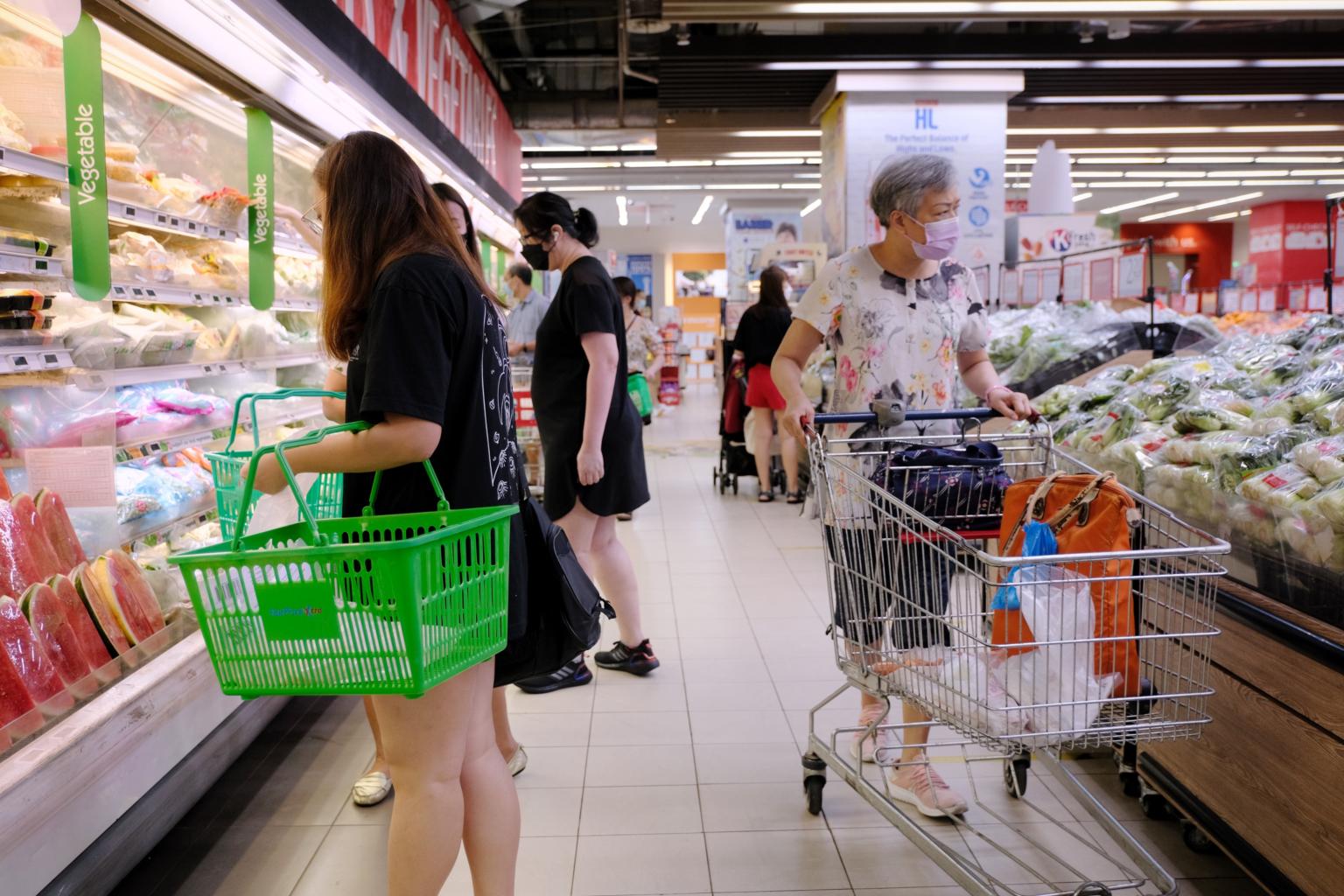More lower-income households now have regular, nutritious meals: SMU study
Sign up now: Get ST's newsletters delivered to your inbox

Out of 59 households, 12 now said they were able to get sufficient, safe and nutritious food.
PHOTO: ST FILE
SINGAPORE - About one-fifth of lower-income households studied were able to improve their access to healthy and regular meals daily despite the economic setback caused by the Covid-19 pandemic over the past two years.
Out of 59 households, which had earlier reported difficulties maintaining the quality and regularity of their meals, 12 households now said they were able to get sufficient, safe and nutritious food.
This finding is part of a study conducted in 2021 by the Singapore Management University's (SMU) Lien Centre for Social Innovation (LCSI) titled The Hunger Report Part II: Targeting Specific Needs In The Wake Of Covid-19. The results of the study were published in March this year.
The improvement was attributed to two main reasons, according to Dr Dalvin Sidhu, an author of the study and senior programme manager at LCSI.
She said: "(There were) many government aid schemes given out to those who had lost their jobs or (had been) adversely affected by the pandemic. So many of these households would have received some form of monetary aid.
"The pandemic also gave rise to the gig economy, so services such as Grab and Gojek were able to recruit many of these individuals and provide them with alternative sources of income."
The report is a continuation of an earlier study conducted in 2019, according to Dr Sidhu. She said the 2021 study assessed the pandemic's impact on the food security of lower-income households.
Food insecurity is defined as difficulty in maintaining the quality or amount of food consumed. Indicators include a reduction in the amount of food consumed and disruption in eating patterns.
Commissioned by The Food Bank Singapore, the 2019 study surveyed around 1,200 households and found that about 10 per cent experienced some form of food insecurity at least once in the 12 months before the survey's completion.
Almost 80 per cent of respondents cited financial constraints as the main reason for food insecurity.
In 2019, Singapore was ranked as being the world's most food-secure nation on the Global Food Security Index by the Economist Intelligence Unit.
"What we wanted to do in Hunger Report II was to go back to the previously identified food-insecure households, just to understand how Covid-19 had impacted them," said Dr Sidhu.
She added this was so that they could put into action recommendations that her team had suggested in the previous report.
Her teammate, Dr Tania Nagpaul, said existing food support schemes have a level of misalignment in terms of disbursing aid to lower-income households.
Said Dr Nagpaul: "Some reasons that were cited by these households, with regard to the food they were being given, were issues to do with mobility, cultural preferences and dietary requirements."
Dr Sidhu cited the example of a household that had received packets of purple sweet potato noodles with other groceries from a food support group. The family later said they did not know how to use the noodles in a meal.
Over a two-month period, some of the households were given FairPrice vouchers worth $160 to $300 a month, depending on the size of the household.
Recipients used the vouchers to buy food similar to that bought by the average Singaporean, the researchers observed.
Said Dr Sidhu: "We saw that they (the lower-income households) were purchasing more fresh fruit and vegetables, as well as fresh meat and fish.
"Our takeaway from this was that when these households are given some autonomy in making better decisions about their nutrition, they are willing to do so, and this offered them the additional benefit of exercising self-reliance in a dignified manner."
Dr Sidhu and Dr Nagpaul will be speaking more about food insecurity and urban poverty at an online seminar, Conversations Reimagined: Urban Poverty, The Hidden Struggles on April 14 from 3pm to 4.30pm.
The seminar is organised by social movement The Best of You, a storytelling platform that seeks to highlight social inequality. Members of the public who wish to attend or find out more information about the seminar can go to this Facebook page.


